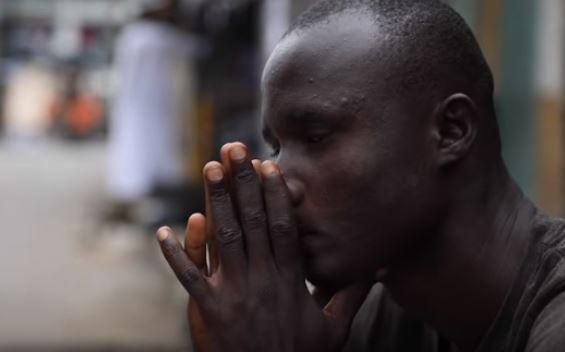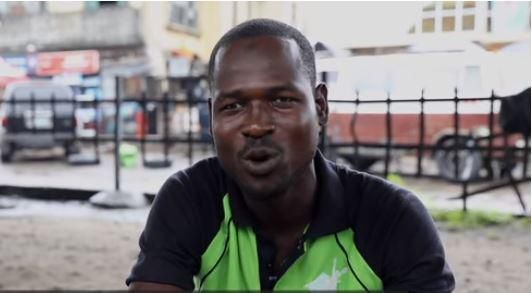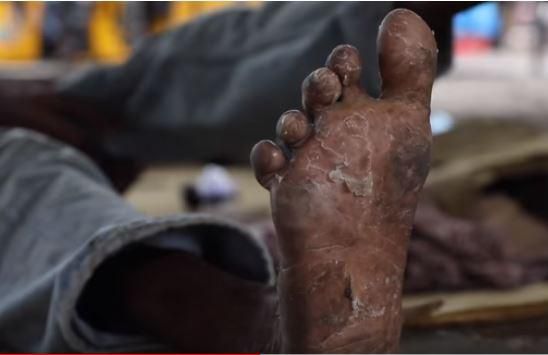Homeless in Lagos: Nigerians are sleeping under the bridge
)
Homelessness is a global pandemic, a major headache, even in the most advanced economies where wealth in vertically accessible in relative doses. In New York and California, you see homeless men on the streets despite the presence of homeless shelters for people in these advanced climes.
It just proves that no matter the global standing of any country, there will always be homeless people, probably due to choice, grit to make it or insufficient affordable housing. Homelessness is sadly a scourge we might never be able to eradicate as a people.
In Lagos, the term ‘sleep under a bridge’ was coined in the '60s and '70s, at the start of Nigerian industrialization, when Lagos made its earliest claim to becoming Nigeria’s commercial hub, harboring scores of migrants from smaller, less-commercial Nigerian cities who made a staple that represented the struggle.
Some of these people come to Lagos for opportunity and a chance at making it, without a support system, so they sleep under bridges and in unholy places till they can afford homes.

The issue has still not stopped as scores of people still migrate to Lagos in yearly droves. A recent episode of BBC’s “Homeless in Lagos” profiled 23-year-old Christian, Manchester United fan, Godwin. He claims he sleeps under the bridge because housing in Lagos is expensive; the average apartment costs between NGN150K and NGN200K — he only has NGN50, 000 after working hard.
Godwin claims, “When I was in my final year, I used to hear; there’s money in Lagos, there’s work in Lagos. My aim was to come and work, I did not even plan to live under a bridge.” Despite his education, Godwin is now an agbero in Lagos, he helps drivers load their buses for NGN50-NGN100. At the time BBC caught up to him, he had been doing that for four months.
ALSO READ: Glorifying yahoo yahoo in music is wrong
In January 2018, The Sun newspaper wrote, “Statistics on housing show that Nigeria, with an estimated population of 170 million people, has housing deficit of 17 million units. The World Bank, in 2016, projected that it would cost the country about N59.5 trillion to address the deficit.
“About 108 million Nigerians are estimated to be homeless, based on an average family of six people per housing unit. While Nigeria needs to build about 700,000 housing units every year to bridge the housing gap, the country barely builds 100,000 such units per year.”

Away from Godwin, the BBC also interviewed an unnamed man suffering the effects of Boko Haram’s terrorism. He claims, “Despite the economic situation of this state, I’m still managing, living under a bridge. I won’t do this forever, my life will not end like this under bridge. I hope to one day return to my home and continue my life.”
In 2016, President Muhammadu Buhari promised to address Nigeria’s housing issues by embarking on a mass construction project that will build 5,000 homes per year for three years — we are yet to see any of promises yield anything.

Before the BBC documentary ends, another man, whose legs feet were peeled claims he had been living under that bridge for 14 years.
Amnesty International has also released a study that reveals that 1.7 million people in North-East Nigeria are displaced by effects of terrorism and they’re all likely to end up in Lagos.
Watch a video of the documentary below;
![Aisha blows hot on Security forces; Y7ou won't believe what she said [VIDEO]](https://image.api.sportal365.com/process/smp-images-production/pulse.ng/17082024/1f976edf-1ee2-4644-8ba1-7b52359e1a8f?operations=autocrop(640:427))
)
)
)
![Lagos state Governor, Babajide Sanwo-Olu visited the Infectious Disease Hospital in Yaba where the Coronavirus index patient is being managed. [Twitter/@jidesanwoolu]](https://image.api.sportal365.com/process/smp-images-production/pulse.ng/16082024/377b73a6-190e-4c77-b687-ca4cb1ee7489?operations=autocrop(236:157))
)
)
)
)
)
)
)
)
)
)
)